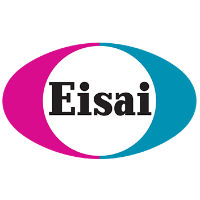预约演示
更新于:2025-05-07
Peripheral T-cell lymphoma unspecified refractory
难治性外周T细胞淋巴瘤
更新于:2025-05-07
基本信息
别名 Peripheral T-cell lymphoma unspecified refractory、Refractory Peripheral T-Cell Lymphoma, Not Otherwise Specified、Refractory Unspecified Peripheral T-Cell Lymphoma + [2] |
简介 Peripheral T-cell lymphoma, not otherwise specified that is resistant to treatment. |
关联
11
项与 难治性外周T细胞淋巴瘤 相关的药物靶点 |
作用机制 PI3Kδ抑制剂 |
在研机构 |
原研机构 |
非在研适应症 |
最高研发阶段批准上市 |
首次获批国家/地区 中国 |
首次获批日期2022-11-08 |
28
项与 难治性外周T细胞淋巴瘤 相关的临床试验NCT06671717
Pralatrexate Combined With Chidamide Bridging Allogeneic Hematopoietic Stem Cell Transplantation for Refractory/Relapsed Peripheral T-cell Lymphoma
This is a multicenter, prospective study of Pralatrexate combined with Chidamide bridging Allogeneic Hematopoietic Stem Cell Transplantation for Refractory/Relapsed Peripheral T-cell Lymphoma
开始日期2024-12-01 |
申办/合作机构 北京大学人民医院 [+3] |
NCT06160843
Pembrolizumab and Olaparib Treatment for Relapsed or Refractory Peripheral T-Cell Lymphoma
The goal of this clinical trial is to evaluate the efficacy and safety of Pembrolizumab in combination with Olaparib in participants with relapsed/refractory Peripheral T-cell Lymphoma (PTCL).
The study mainly aims to evaluate:
* objective response rate (ORR) as per Cheson response criteria assessed by the independent central review
* overall survival and progression-free survival
* adverse events by CTCAE version 5.0
The administration of Pembrolizumab and Olaparib to participants will occur on Day 1 of each 3-week dosing cycle and will continue until disease progression or unacceptable toxicity, up to 35 cycles. Treatment with Olaparib will proceed continuously from Day 1 of Cycle 1, in 3-week dosing cycles in parallel with Pembrolizumab, up to 35 cycles, unless specific withdrawal/discontinuation criteria are met. After the end of treatment, each subject will be followed for 30 days for adverse event (AE) monitoring (serious AEs [SAEs] will be collected for 90 days after the end of treatment or 30 days after the end of treatment if the subject initiates new anticancer therapy, whichever is earlier).
The study mainly aims to evaluate:
* objective response rate (ORR) as per Cheson response criteria assessed by the independent central review
* overall survival and progression-free survival
* adverse events by CTCAE version 5.0
The administration of Pembrolizumab and Olaparib to participants will occur on Day 1 of each 3-week dosing cycle and will continue until disease progression or unacceptable toxicity, up to 35 cycles. Treatment with Olaparib will proceed continuously from Day 1 of Cycle 1, in 3-week dosing cycles in parallel with Pembrolizumab, up to 35 cycles, unless specific withdrawal/discontinuation criteria are met. After the end of treatment, each subject will be followed for 30 days for adverse event (AE) monitoring (serious AEs [SAEs] will be collected for 90 days after the end of treatment or 30 days after the end of treatment if the subject initiates new anticancer therapy, whichever is earlier).
开始日期2024-07-01 |
申办/合作机构 |
NCT05137847
Post-marketing Observational Study of Remitoro® Intravenous Injection 300 μg - Safety of Remitoro in Patients With Recurrent or Refractory Peripheral T Cell Lymphoma and Cutaneous T Cell Lymphoma (All Case Study)
The primary purpose of the study is to investigate the incidence of adverse drug reactions (ADRs) (ADR of special interest: capillary leak syndrome, infusion reaction, rhabdomyolysis, myelosuppression, infection, hepatic dysfunction, visual impairment/color blindness, ischemic heart disease/arrhythmia/cardiac failure, and severe skin disorders).
开始日期2021-05-24 |
申办/合作机构 |
100 项与 难治性外周T细胞淋巴瘤 相关的临床结果
登录后查看更多信息
100 项与 难治性外周T细胞淋巴瘤 相关的转化医学
登录后查看更多信息
0 项与 难治性外周T细胞淋巴瘤 相关的专利(医药)
登录后查看更多信息
8
项与 难治性外周T细胞淋巴瘤 相关的文献(医药)2022-01-01·Transplantation Proceedings4区 · 医学
High-Dose Chemotherapy With Autologous Stem Cell Transplantation in a Case of Refractory Peripheral T Cell Lymphoma With Tracheoesophageal Fistula: A Case Report
4区 · 医学
Article
作者: Nakashima, Yasuhiro ; Hayashi, Tetsuya ; Nakamae, Hirohisa ; Okamoto, Sachimi ; Naka, Ryoko ; Nishimoto, Mitsutaka ; Hino, Masayuki ; Lee, Shigeru ; Gyobu, Ken ; Nanno, Satoru
2019-07-01·Clinical Lymphoma Myeloma and Leukemia4区 · 医学
High Level of Serum Soluble Interleukin-2 Receptor Is Associated With Poor Survival in Patients With First Relapsed or Refractory Peripheral T-Cell Lymphoma, Not Otherwise Specified: A Retrospective Study
4区 · 医学
Article
作者: Katoh, Daisuke ; Morita-Fujita, Mari ; Ishikawa, Takayuki ; Shimomura, Yoshimitsu
2017-02-01·Annals of Hematology3区 · 医学
Gemcitabine, dexamethasone, and cisplatin (GDP) as salvage chemotherapy for patients with relapsed or refractory peripheral T cell lymphoma—not otherwise specified
3区 · 医学
Article
作者: Dong, Mei ; Shi, Yuankai ; Qi, Fei ; Zhou, Shengyu ; Zhang, Changgong ; Wang, Weihu ; Gui, Lin ; Li, Yexiong ; He, Xiaohui ; Yang, Jianliang ; Yang, Sheng ; Liu, Peng
6
项与 难治性外周T细胞淋巴瘤 相关的新闻(医药)2023-11-14
·医药观澜
▎药明康德内容团队报道美国血液学会(ASH)年会是全球血液学领域的国际学术盛会。2023年ASH大会将于12月9日~12日在美国圣地亚哥举行。近日,多家中国生物医药公司宣布将在ASH年会上公布其创新疗法的最新研究结果,其中多项研究还入选了口头报告。在本文中,我们结合各公司已发布的新闻稿汇总部分创新药的研究,仅供读者参阅(排名不分先后)。恒瑞医药:海曲泊帕、卡瑞利珠单抗等作用机制:TPO受体激动剂、PD-1抑制剂等适应症:再生障碍性贫血等根据恒瑞医药新闻稿,其研发的TPO受体激动剂海曲泊帕、PD-1抑制剂卡瑞利珠单抗、JAK1抑制剂SHR0302,以及与璎黎药业合作开发的高选择性小分子PI3Kδ抑制剂林普利塞等12项研究入围本次ASH大会。其中,海曲泊帕有6项临床研究入选,针对的适应症包括输血依赖性非重型再生障碍性贫血、重型再生障碍性贫血、淋巴瘤和多发性骨髓瘤肿瘤治疗所致血小板减少症、重症免疫性血小板减少症等;SHR0302入选的则是一项治疗慢性移植物抗宿主病的1期临床试验。璎黎药业/恒瑞医药:林普利塞作用机制:PI3Kδ抑制剂适应症:外周T/NK细胞淋巴瘤根据璎黎药业新闻稿,其在研产品林普利塞治疗复发/难治性外周T/NK细胞淋巴瘤的多中心2期研究入选了本次ASH大会口头报告。林普利塞是一款靶向PI3Kδ的高选择性小分子抑制剂。恒瑞医药已于2021年2月与璎黎药业达成合作,获得了该药在大中华地区的联合开发权益以及排他性独家商业化权益。目前,林普利塞已经在中国获得附条件批准,用于治疗滤泡性淋巴瘤成人患者,其治疗复发和/或难治性外周T细胞淋巴瘤(R/R PTCL)的新适应症上市申请也已经获得中国国家药监局药品审评中心(CDE)受理。迪哲医药:戈利昔替尼、DZD8586作用机制:JAK1抑制剂、LYN/BTK双靶点抑制剂适应症:外周T细胞淋巴瘤(PTCL)、B细胞非霍奇金淋巴瘤(B-NHL)根据迪哲医药新闻稿,其JAK1抑制剂戈利昔替尼和LYN/BTK双靶点抑制剂DZD8586在淋巴瘤领域的4项研究成果入选本届ASH年会。其中,戈利昔替尼治疗复发/难治性(r/r)PTCL的全球多中心关键性临床试验JACKPOT8的B部分将以口头报告形式公布详细生存数据。此前,该试验已达到主要研究终点,独立影像评估委员会(IRC)评估的客观缓解率(ORR)高达44.3%,高于现有治疗方案近2倍,安全且耐受性良好。此外,戈利昔替尼治疗PTCL的2期临床JACKPOT26试验结果,以及DZD8586治疗B-NHL的临床前研究和1期临床研究汇总分析均入选本次大会。亘喜生物:GC012F作用机制:BCMA/CD19双靶点CAR-T适应症:多发性骨髓瘤(MM)根据亘喜生物新闻稿,该公司将在本届ASH年会上口头报告一项由研究者发起的临床试验(IIT)的最新研究结果。该试验旨在评估BCMA/CD19双靶点自体CAR-T细胞疗法GC012F治疗高危多发性骨髓瘤新确诊(NDMM)患者的安全性和有效性。在去年ASH大会上,研究人员已公布13例患者的首次临床数据。随着更多患者入组治疗,以及既往患者的随访时间不断拉长,他们观察到GC012F持续展现出较好的应答深度及安全性优势,有望成为一款具有代表性的下一代CAR-T疗法,革新多发性骨髓瘤患者前线及早线治疗的格局。传奇生物:西达基奥仑赛作用机制:BCMA CAR-T适应症:多发性骨髓瘤根据传奇生物新闻稿,该公司西达基奥仑赛CARTITUDE临床开发项目将在本届ASH年会上发表两场口头报告和五项壁报展示。其中,入选口头报告的有:针对既往接受过一至三线治疗且来那度胺耐药的多发性骨髓瘤患者的3期CARTITUDE-4研究,以及针对既往接受过一至三线治疗的多发性骨髓瘤患者(队列A)以及对既往接受过一线治疗后早期复发的患者(队列B)的2期CARTITUDE-2研究。西达基奥仑赛是一种靶向B细胞成熟抗原(BCMA)的嵌合抗原受体T细胞(CAR-T)疗法,已在美国获批治疗复发或难治性多发性骨髓瘤成人患者,并在中国申报上市。亚盛医药:奥雷巴替尼、APG-2575作用机制:第三代BCR-ABL抑制剂、Bcl-2抑制剂适应症:慢性髓细胞白血病、费城染色体阳性急性淋巴细胞白血病等根据亚盛医药新闻稿,其在研第三代BCR-ABL抑制剂奥雷巴替尼(耐立克)和Bcl-2抑制剂APG-2575有多项临床研究将在本次ASH年会展示。其中,奥雷巴替尼两项研究入选为口头报告,分别是治疗一代和二代TKI耐药的慢性髓细胞白血病慢性期(CML-CP)患者的随机、对照、注册性2期研究,以及联合Bcl-2抑制剂维奈克拉和低强度化疗治疗初治费城染色体阳性急性淋巴细胞白血病(Ph+ ALL)患者的2期临床试验。此外,亚盛医药还将在此次大会上展示APG-2575分别治疗慢性淋巴细胞白血病(CLL)、复发/难治性(R/R)多发性骨髓瘤(MM)和急性髓系白血病(AML)的最新临床试验结果。科越医药:KP104作用机制:双靶点补体药物适应症:阵发性睡眠性血红蛋白尿症(PNH)根据科越医药新闻稿,其创新的双靶点补体抑制剂KP104治疗阵发性睡眠性血红蛋白尿症(PNH)患者的2期试验中期安全性和有效性数据将在本届ASH年会上进行口头报告。PNH是一种由属于先天免疫系统的补体系统的过度活动引起的罕见血液疾病,KP104可选择性地同时靶向补体旁路途径和末端途径。2期临床结果显示,该产品在未接受补体抑制剂治疗的PNH患者中可同时有效控制血管内和血管外溶血。塔吉瑞:TGRX-678 作用机制:BCR-ABL变构抑制剂适应症:慢性粒细胞白血病 根据塔吉瑞新闻稿,该公司研发的用于治疗慢性粒细胞白血病(CML)的BCR-ABL变构抑制剂TGRX-678,将在本届ASH年会上首次公布1期临床试验及临床前试验研究结果。TGRX-678靶向作用于BCR-ABL融合基因的变构位点,具有治疗对现有上市药物的耐药(包括守门残基T315I突变耐药)或不耐受的CML患者的潜力。该产品已展示了临床前的抗白血病活性和高口服生物利用度,与TKI产品ponatinib联用具有协同效应,从而抑制高度耐药的复合突变体。宜明昂科:替达派西普作用机制:SIRPαFc融合蛋白药物适应症:经典霍奇金淋巴瘤(CHL)、高危骨髓增生异常综合征(MDS)、慢性粒细胞白血病(CMML)根据宜明昂科新闻稿,其在研靶向人CD47的SIRPαFc融合蛋白药物替达派西普(IMM01)3项2期临床研究结果将在本届ASH年会进行口头报告或壁报展示,分别是:1)IMM01+替雷利珠单抗治疗既往抗PD-1单抗失败CHL的开放标签、多中心2期研究;2)IMM01联合阿扎胞苷一线治疗高危MDS成年患者的2期研究;3)IMM01联合阿扎胞苷作为成人CMML一线治疗的2期研究。IMM01是基于宜明昂科自有研发平台研发、经基因修饰的新一代CD47靶向分子,能够同时阻断来自肿瘤的“别吃我”信号,并通过IgG1激活患者免疫系统的“吃我”信号。赛诺哈勃:BT-114143作用机制:纤溶酶原活化抑制剂适应症:纤维蛋白溶解亢进引起的各种出血和疾病根据赛诺哈勃新闻稿,其研发的创新小分子纤溶酶原活化抑制剂BT-114143的非临床研究成果入选为本次ASH年会墙报。BT-114143拟用于治疗和预防纤维蛋白溶解亢进引起的各种出血和疾病,正在中国开展1期临床研究。赛诺哈勃还于今年10月提交了该产品肌肉注射剂的新药研究申请,拟用于自然灾害、突发事件、战场等特殊场合的创伤急救。和正医药:HZ-A-018、HZ-H08905作用机制:新一代BTK抑制剂、CK1ε/PI3Kδ双靶点抑制剂适应症:中枢神经系统淋巴瘤、非霍奇金淋巴瘤根据和正医药新闻稿,其研发的新一代BTK抑制剂HZ-A-018和CK1ε/PI3Kδ双靶点抑制剂HZ-H08905的最新临床研究数据均入选本次ASH年会,即将进行壁报展示和交流。两项研究分别为:一项评价HZ-A-018治疗复发或难治性的原发或继发中枢神经系统淋巴瘤的安全性和有效性的1/2期研究;HZ-H08905针对复发或难治性非霍奇金淋巴瘤患者的安全性/耐受性及药代动力学的1期临床研究。科济药业:泽沃基奥仑赛注射液作用机制:针对BCMA的自体CAR-T产品适应症:复发/难治多发性骨髓瘤根据科济药业(CARsgen)新闻稿,其在研产品泽沃基奥仑赛注射液(zevor-cel,CT053)的1期LUMMICAR STUDY 1研究3年随访结果将在本次ASH年会以壁报形式展示。泽沃基奥仑赛注射液是一种全人抗自体BCMA CAR-T细胞候选产品。基于中国1/2期临床试验(LUMMICAR STUDY 1)结果,该药治疗复发/难治多发性骨髓瘤的新药上市申请已获得CDE受理。麓鹏制药:LP-168作用机制:新一代BTK抑制剂适应症:套细胞淋巴瘤等根据麓鹏制药新闻稿,其研发的具有高活性、超高选择性的新一代BTK抑制剂LP-168的四项最新研究数据入选本次ASH年会,即将进行口头或海报交流,研究内容涵盖套细胞淋巴瘤、淋巴细胞白血病、B细胞淋巴瘤等领域。LP-168兼具以共价和非共价方式结合靶点的能力,其治疗复发或难治的套细胞淋巴瘤(R/R MCL)的2期ROCK-1研究已经获得CDE批准,并同意以该研究为关键性注册研究支持LP-168在目标人群中的附条件上市申请。和剂药业:soquelitinib作用机制:ITK抑制剂适应症:外周T细胞淋巴瘤根据和剂药业新闻稿,该公司将在本次ASH年会上公布其用于难治性外周T细胞淋巴瘤患者的ITK抑制剂soquelitinib的1/1b期临床试验的最新中期数据。Soquelitinib(CPI-818)是一种在研小分子口服药物,可选择性抑制白细胞介素2诱导型T细胞激酶(ITK)。该药有潜力控制正常T辅助细胞的分化,并通过增强细胞毒性杀伤T细胞的产生和抑制癌细胞存活的细胞因子的产生来增强免疫反应。近年来,血液学领域新药研发进展迅速,尤其是血液瘤领域,各种靶向疗法和免疫疗法等在疾病治疗中取得突破。我们也将持续跟踪本届ASH会议,为大家分享更多血液学研究领域的前沿动态,也期待听到来自更多生物医药公司的最新研究进展。参考资料(可上下滑动查看) [1] 科越医药将在2023年美国血液学年会以口头报告的形式公布阵发性睡眠性血红蛋白尿症II期临床研究的中期临床数据. Retrieved Nov 2, 2023. From https://mp.weixin.qq.com/s/1Zn3GbzUE4EB_vN4pfK1Ig[2] 戈利昔替尼斩获ASH口头报告!DZD8586全球首发!迪哲医药将携4项研究成果耀动全球血液学顶级盛会. Retrieved Nov 3 , 2023, from https://mp.weixin.qq.com/s/vtPBoEETzX9ot6XzkPXyZg[3] ASH2023|亘喜生物将公布BCMA/CD19双靶点FasTCAR-T GC012F治疗多发性骨髓瘤新确诊患者的最新临床结果. Retrieved Nov 3 , 2023, from https://mp.weixin.qq.com/s/VyY4DDUI3lGiV0jYbzVpRg[4] 精彩预告 | 传奇生物西达基奥仑赛最新研究成果即将亮相2023ASH年会. Retrieved Nov 2 , 2023, from https://mp.weixin.qq.com/s/ukeRsoZtduYrd8ClDKq1Jw[5] 【2023 ASH】六连冠!耐立克®携多项研究第六次入选,其中2项获口头报告. Retrieved Nov 3 , 2023, from https://mp.weixin.qq.com/s/2V6RPp920AbcCcwhPUOYdw[6] 【2023 ASH】亚盛医药Bcl-2抑制剂APG-2575三项研究入选,治疗AML、MM等患者数据首次公布 . Retrieved Nov 3 , 2023, from https://mp.weixin.qq.com/s/3kJEDcB_2vH5mLsRGJKzUQ[7] ASH 2023 | 塔吉瑞 TGRX-678 两项最新研究成果入选 2023 年美国血液学会年会. Retrieved Nov 3 , 2023, from https://mp.weixin.qq.com/s/dC5WhcvrdRbOQhPVdOvFgw[8] 2023 ASH|三项研究入选!宜明昂科替达派西普(Timdarpacept)治疗cHL、MDS及CMML患者临床II期数据公布. Retrieved Nov 3 , 2023, from https://mp.weixin.qq.com/s/iuwOnL1doxTghLnETUkZ9A[9] 和正医药2项临床研究即将亮相ASH 2023. Retrieved Nov 3 , 2023, from https://mp.weixin.qq.com/s/Ha-Ifn10p3R8E4K9UGzGWA[10] ASH预告 | 科济药业泽沃基奥仑赛注射液的研究成果即将亮相2023 ASH年会. Retrieved Oct 20 , 2023, from https://mp.weixin.qq.com/s/T7rLyuXoatsEvtenchY4sw[11] 喜报 | 麓鹏制药新一代BTK抑制剂LP-168最新临床数据即将亮相ASH 2023. Retrieved Oct 11 , 2023, from https://mp.weixin.qq.com/s/27Hr_umG4lSeAdNCAkCdzw[12] 璎黎药业全新一代PI3Kδ 抑制剂林普利塞的最新研究数据入选2023 ASH年会口头报告. Retrieved Nov 7 , 2023, from https://mp.weixin.qq.com/s/4mHx9qf-hCyPNYtmr0VsGA[13] 2023ASH - 和剂药业将展示Soquelitinib(ITK抑制剂)I/Ib期T细胞淋巴瘤临床试验的最新中期数据. Retrieved Nov 7 , 2023, from https://mp.weixin.qq.com/s/yQwe6a0_tshz4FulSqozeA[14] 2023ASH前瞻︱恒瑞医药创新药12项血液学领域研究将亮相国际舞台!. Retrieved Nov 3 , 2023, from https://mp.weixin.qq.com/s/guBedV32gM1UB_iSSrc8MQ[15] 速递| 赛诺哈勃药业将于2023年 ASH年会公布创新小分子BT-114143非临床研究数据. Retrieved Nov 3 , 2023, from https://mp.weixin.qq.com/s/4FaJB6AQtwBtA4FK4HSlJw本文来自药明康德内容团队,欢迎个人转发至朋友圈,谢绝媒体或机构未经授权以任何形式转载至其他平台。转载授权请在「医药观澜」微信公众号留言联系我们。其他合作需求,请联系wuxi_media@wuxiapptec.com。免责声明:药明康德内容团队专注介绍全球生物医药健康研究进展。本文仅作信息交流之目的,文中观点不代表药明康德立场,亦不代表药明康德支持或反对文中观点。本文也不是治疗方案推荐。如需获得治疗方案指导,请前往正规医院就诊。
临床2期临床1期ASH会议申请上市临床结果
2023-01-25
·医药观澜
▎药明康德内容团队报道公开资料显示,在2022年,有多款中国公司开发的创新药获得美国FDA授予的快速通道资格。快速通道资格的设立旨在促进或加速用于治疗严重或危及生命的疾病且显示出有潜力满足当前未满足临床需求的药物开发,使药物能够快速获批上市。本文中我们将分享10款于2022年(按企业宣布时间统计)获得FDA授予快速通道资格的新药,看看它们都有望惠及哪类患者?红日药业:注射用甲磺酸苦柯胺B作用机制:细菌病原体相关分子拮抗剂适应症:脓毒症2022年1月,红日药业宣布其在研新药注射用甲磺酸苦柯胺B获得FDA授予的快速通道资格,用于治疗脓毒症。甲磺酸苦柯胺B是一种细菌病原体相关分子拮抗剂,它以LPS和CpGDNA为双靶标。根据红日药业公开资料,该药的作用机理是:通过与LPS和CpGDNA的高亲合力结合作用阻断LPS和CpGDNA与相应受体的结合,进而在有效控制感染的前提下抑制LPS和CpGDNA诱导免疫细胞释放炎症介质TNF-α和IL-6,从而抑制机体因细菌感染而导致的系统性炎症反应,最终达到治疗脓毒症的效果。此前,该药已在美国获批开展2期临床。石药集团:JMT601作用机制:CD20/CD47双抗适应症:弥漫大B细胞淋巴瘤2022年1月,石药集团宣布在研新药JMT601(CPO107)获得FDA授予快速通道资格,用于治疗成人复发或难治性弥漫大B细胞淋巴瘤。石药集团公开资料显示,JMT601是一款具有协同靶向结合效应的双特异性SIRPα融合蛋白,它可有效结合淋巴瘤细胞表面的CD20,以诱发抗体依赖性细胞介导的细胞毒作用及补体依赖的细胞毒作用。而该药与CD20的结合可进一步导致其与淋巴瘤细胞上表达的CD47协同结合,从而阻断CD47传递“别吃我”信号,并诱导抗体依赖性的巨噬细胞吞噬作用。目前,该药正在美国开展JMT601治疗晚期非霍奇金淋巴瘤(包括弥漫大B细胞淋巴瘤亚群)的临床试验。以明生物:IO-202作用机制:抗LILRB4抗体适应症:急性髓系白血病2022年2月,以明生物(Immune-Onc Therapeutics)宣布其在研抗LILRB4抗体IO-202获得FDA授予的快速通道资格,用于治疗复发或难治性急性髓系白血病(AML)。LILRB4(又称ILT3)是髓系单核细胞(包括树突状细胞)表面的一种免疫抑制性跨膜蛋白。IO-202是一款靶向LILRB4的抑制性抗体,具有治疗血液瘤和实体瘤的潜力。针对血液瘤的临床前研究数据表明,该药可激活T细胞杀伤作用,将“别杀我”信号转换为“来杀我”信号,并通过抑制血液瘤细胞浸润,将“看不到我”信号转为“我在这里”信号。针对实体瘤的临床前研究数据表明,IO-202在体外研究中具有增强树突状细胞功能和T细胞激活作用,并能在实体瘤体内研究模型中抑制肿瘤生长。迪哲医药:戈利昔替尼作用机制:JAK1抑制剂适应症:外周T细胞淋巴瘤2022年2月,迪哲医药宣布JAK1抑制剂戈利昔替尼获得FDA授予快速通道资格,用于治疗复发/难治性外周T细胞淋巴瘤(PTCL)患者。戈利昔替尼(DZD4205)是一款高选择性JAK1抑制剂,具有治疗多种血液肿瘤、实体瘤和自身免疫性疾病的潜力。根据迪哲医药早前发布的新闻稿,PTCL是戈利昔替尼研究进度最快的适应症。研究人员在2022年美国临床肿瘤学会(ASCO)年会上公布的戈利昔替尼治疗复发/难治性PTCL患者的国际多中心1/2期临床试验数据显示,患者的肿瘤缓解率(ORR)达42.9%,最长缓解持续时间(DoR)超过14个月,在多种常见PTCL亚型中均观察到肿瘤缓解,并且在既往接受过HDAC抑制剂、干细胞移植的患者中观察到不错的疗效信号。志健金瑞:APS03118作用机制:RET抑制剂适应症:非小细胞肺癌2022年2月,志健金瑞宣布其自主研发的新型RET抑制剂APS03118获得FDA授予的快速通道资格,用于对选择性RET抑制剂耐药的转移性RET融合阳性非小细胞肺癌(NSCLC)患者。志健金瑞公开资料显示,APS03118是一种新型强效、高选择性的第二代RET抑制剂。它可通过选择性抑制RET蛋白,阻断RET蛋白下游的信号通路(包含RAS、MAPK、ERK、PI3K、AKT等),从而抑制肿瘤细胞增殖、迁移和分化。临床前研究显示,APS03118作用机理明确,体内外生物学活性一致。目前,该药正在美国和中国开展临床研究。斯丹赛生物:GCC19CART作用机制:靶向GCC的自体CAR-T适应症:结直肠癌2022年4月,斯丹赛生物宣布FDA已授予GCC19CART快速通道资格。CC19CART是斯丹赛生物开发的一种靶向鸟苷酸环化酶C(GCC)的自体CAR-T治疗产品,拟开发用于治疗复发/难治性转移型结直肠癌。公开资料显示,许多结直肠癌患者的肿瘤中,GCC表达呈阳性,因此靶向GCC的疗法有望为这类患者提供一种新的治疗选择。在2022年5月举行的美国基因与细胞治疗学会(ASGCT)上,研究人员口头报告了GCC19CART用于治疗复发/难治性结直肠癌的1期临床试验结果。数据显示,该候选药在患者中显示出了与剂量相关的良好的临床初步疗效,以及可接受的安全性。康诺亚:CMG901作用机制:靶向Claudin 18.2的ADC适应症:胃癌及胃食管结合部腺癌2022年4月,康诺亚宣布其核心产品CMG901获得FDA授予的快速通道资格,用于治疗复发/难治性胃癌和胃食管结合部腺癌患者。CMG901是一款靶向Claudin 18.2的抗体偶联药物(ADC)。其中,Claudin 18.2是在胃癌、胰腺癌及其他实体瘤中特异性高表达的一种蛋白。根据康诺亚的公开资料, CMG901可通过Claudin 18.2抗体部分特异结合Claudin 18.2阳性细胞,并内吞进入细胞溶酶体,释放甲基澳瑞他汀E(MMAE)进而导致肿瘤细胞的细胞周期停滞并诱发细胞凋亡。此外,它还可激活免疫防御,通过抗体依赖的细胞毒性作用和补体依赖的细胞毒性作用效应杀伤Claudin 18.2阳性细胞。宜明昂科:IMM2902作用机制:CD47×HER2双抗适应症:乳腺癌2022年7月,宜明昂科宣布其开发的在研新药IMM2902获得FDA授予的快速通道资格,用于治疗乳腺癌。根据宜明昂科公开资料,IMM2902是一款靶向CD47与HER2的双特异性分子。它不仅可通过阻断HER2和CD47/SIRPα的抑制信号以及促进HER2降解来抑制肿瘤细胞的生长和增殖,而且可通过提高抗体依赖性细胞吞噬作用、抗体依赖性细胞介导的细胞毒作用以及潜在的抗体依赖的细胞胞啃作用进一步消灭肿瘤细胞。目前,宜明昂科正在开发IMM2902用于治疗HER2阳性和HER2低表达的实体瘤。泰诺麦博生物:TNM002注射液作用机制:重组抗破伤风毒素全人源单抗适应症:预防破伤风2022年8月,泰诺麦博生物宣布其自主研发的TNM002注射液获得FDA授予快速通道资格。根据泰诺麦博生物公开资料,TNM002是该公司利用其HitmAb技术平台开发的一款重组抗破伤风毒素全人源单克隆抗体,将主要用于外伤暴露后破伤风的预防,有望替代临床上使用的“马破”(指马破伤风免疫球蛋白)和“人破”(指破伤风人免疫球蛋白)。早期临床数据结果显示,TNM002注射液的安全性和耐受性良好,且具有较高的中和破伤风毒素的能力。在中国,该药已于2022年3月被纳入突破性治疗品种,拟用于预防破伤风。思路迪医药/康宁杰瑞:恩沃利单抗作用机制:抗PD-L1单抗适应症:软组织肉瘤2022年9月,思路迪医药和康宁杰瑞共同宣布恩沃利单抗注射液获得FDA授予的快速通道资格,拟用于治疗先前接受过化疗后进展的局部晚期、不可切除或转移性未分化多形性肉瘤和粘液纤维肉瘤患者。恩沃利单抗是一款皮下注射PD-L1抑制剂,由康宁杰瑞研发。2016年起康宁杰瑞与思路迪医药共同开发该药。2019年,思路迪医药、康宁杰瑞授权TRACON Pharmaceuticals在北美地区针对治疗软组织肉瘤的开发及商业化权利。在中国,该药已于2021年11月获批上市,用于不可切除或转移性微卫星高度不稳定(MSI-H)或错配修复基因缺陷型(dMMR)的成人晚期实体瘤患者治疗。除了上述产品,还有一些其他中国公司开发的创新药也在去年获得了FDA授予的快速通道资格,限于篇幅,本文不再一一介绍。希望这些创新药在后续研究中取得更多突破,早日获批上市或获批更多的适应症,惠及广大患者。参考资料(可上下滑动查看)[1]天津红日药业股份有限公司关于 KB 项目获得美国 FDA 快速通道资格的公告.Retrieved Jan 4,2022, fromhttp://www.cninfo.com.cn/new/disclosure/detail?stockCode=300026&announcementId=1212093836&orgId=9900008489&announcementTime=2022-01-05[2]JMT601 (CPO107)治疗成人复发或难治弥漫大B细胞淋巴瘤获美国FDA授予快速通道资格.Retrieved Jan 27,2022,from https://pdf.dfcfw.com/pdf/H2_AN202201271542973086_1.pdf?1643302985000.pdf[3]全球首创靶向LILRB4髓系免疫检查点抑制剂IO-202获FDA快速通道资格认定,用于治疗复发或难治性急性髓系白血病.Retrieved Feb 17,2022. From https://mp.weixin.qq.com/s/z8dRb9yXHLqtFMd8UkUbLQ[4]迪哲医药宣布美国FDA授予DZD4205快速通道认定用于治疗复发难治性外周T细胞淋巴瘤患者.Retrieved Feb 18,2022. From https://mp.weixin.qq.com/s/lhxA4bZ7U6CFKUTwLq7aM[5] 2022ASCO开幕在即,迪哲医药多项研究成果引领全球创新.Retrieved May 28,2022. From https://mp.weixin.qq.com/s/BhylDy-NWhJp4FZelVHPEQ[6]高特佳Ecosystem | FDA授予斯丹赛生物肠癌CAR-T治疗产品快速通道资格.Retrieved Apr 19, 2022.From https://mp.weixin.qq.com/s/vvQl7ktLaMUtALazGqHXWg[7] CAR-T实体瘤突破:2022 ASCO年会斯丹赛生物肠癌新药研究摘要入选.Retrieved May 30, 2022.From http://www.sidansai.com/page79?article_id=618[8] 康诺亚CMG901治疗复发/难治性胃癌及胃食管结合部腺癌获FDA快速通道资格.Retrieved Apr 19, 2022.From https://mp.weixin.qq.com/s/f6KDUvW67lNYQgrosBJnwA[9]宜明昂科IMM2902项目获得美国FDA授予针对乳腺癌的快速通道资格. Retrieved July 15 , 2022. From https://mp.weixin.qq.com/s/FgKssLcJpWNgTv9_pmLm7g[10]泰诺麦博生物TNM002注射液获FDA快速通道(Fast Track)资格. Retrieved Aug 23,2022. From https://mp.weixin.qq.com/s/e8b16MiSBI5-YCWhhZkjiw[11]思路迪医药宣布,恩维达®治疗软组织肉瘤适应症获美国FDA快速通道资格. Retrieved Sep 15, 2022. From https://mp.weixin.qq.com/s/XS95JMmQyGsfUYCuoFy3Sg[12]康宁杰瑞恩沃利单抗治疗软组织肉瘤获美国FDA快速审批资格. Retrieved Sep 15,2022, from https://mp.weixin.qq.com/s/elANAmp_kdAcitqDvhcQJg本文来自药明康德内容团队,欢迎个人转发至朋友圈,谢绝媒体或机构未经授权以任何形式转载至其他平台。转载授权请在「医药观澜」微信公众号留言联系我们。其他合作需求,请联系wuxi_media@wuxiapptec.com。免责声明:药明康德内容团队专注介绍全球生物医药健康研究进展。本文仅作信息交流之目的,文中观点不代表药明康德立场,亦不代表药明康德支持或反对文中观点。本文也不是治疗方案推荐。如需获得治疗方案指导,请前往正规医院就诊。
快速通道临床2期临床1期
2022-07-10
药讯精选GBI NEWS普米斯TIGIT/PVRIG双抗PM1009临试申请获CDE受理普米斯生物技术公司宣布,其抗TIGIT/PVRIG双特异性抗体PM1009的新药临床试验申请(IND)已被药审中心(CDE)受理,拟用于实体瘤的治疗。PM1009是普米斯和美国Adimab公司合作研发并拥有完整知识产权的抗TIGIT/PVRIG双特异性抗体,由全人源高亲和力的抗TIGIT野生型IgG1单克隆抗体连接全人源高亲和力抗PVRIG单链可变区片段组成。临床前研究显示,PM1009可高亲和力结合TIGIT和PVRIG蛋白,解除TIGIT/CD155/CD112以及PVRIG/CD112免疫抑制信号,同时增强CD226激活信号。在PD-1耐药小鼠模型中,PM1009与抗PD-1单克隆抗体联用,具有显著优于TIGIT单抗或PVRIG单抗联合PD-1单抗的抗肿瘤活性,且在GLP毒理学研究中呈现良好的安全性。**关注GBISOURE数据库公众号在线阅读详情传奇生物终止CAR-T疗法LB1901美国I期临床试验金斯瑞生物科技股份有限公司发布公告称,其非全资附属公司传奇生物已通知美国FDA,终止LB1901提交新药临床试验申请(IND)的I期临床试验。此前,该I期临床试验已在2月17日暂停。LB1901是一种在研靶向CD4的自体嵌合抗原受体T细胞(CAR-T)疗法,用于治疗成人复发性或难治性外周T细胞淋巴瘤(PTCL)或皮肤T细胞淋巴瘤(CTCL)。2020年12月,LB1901获FDA批准临床;2021年9月,I期临床正式在美启动。截至暂停试验时,已经有一名患者在该项临床试验中接受了注射。此次终止试验是由于传奇生物一款与LB1901表达相同CAR蛋白的类似CAR-T候选产品缺乏临床效益,该候选产品在中国开展了一项研究者发起的临床研究;传奇生物将优先考虑在研产品线中的其他候选产品。**关注GBISOURE数据库公众号在线阅读详情信达生物达伯坦首张处方落地,开启胆管癌精准治疗时代信达生物宣布,旗下全球首款胆管癌靶向药达伯坦(佩米替尼)开出首张处方,标志着达伯坦正式进入临床应用,为中国胆管癌患者带来国际品质的治疗新选择,开启胆管癌靶向治疗新时代。达伯坦由Incyte和信达生物共同开发,是一种针对FGFR亚型1/2/3的强效选择性口服抑制剂。2018年12月,信达生物与Incyte达成战略合作,信达生物负责中国大陆、香港、澳门和台湾地区的商业化。2020年4月美国FDA批准达伯坦上市。2021年6月和2022年1月,达伯坦先后在中国台湾和中国香港获批,2022年4月6日,达伯坦获中国国家药监局批准,用于既往至少接受过一种系统性治疗,且经检测确认存在有FGFR2融合或重排的晚期、转移性或不可手术切除的胆管癌成人患者的治疗。**关注GBISOURE数据库公众号在线阅读详情企业动态GBI NEWS中国证监会同意盟科药业于科创板上市证监会按法定程序同意上海盟科药业股份有限公司科创板首次公开发行股票注册。盟科药业成立于2007年,是一家以治疗感染性疾病为核心,拥有全球自主知识产权和国际竞争力的创新型生物医药企业,致力于发现、开发和商业化针对未满足临床需求的创新药物。目前盟科拥有多项自主研发的创新药产品管线,以抗多重耐药“超级细菌”感染领域为核心,向肾病领域拓展延伸,包括抗多药耐药革兰阳性菌和抗多药耐药革兰阴性菌新药。公司已在全球范围内成功完成了9个I期临床试验,3个Ⅱ期临床试验和1个Ⅲ期临床试验,另有2个Ⅰ期临床试验正在开展中。**关注GBISOURE数据库公众号在线阅读详情药明合联携手韩国AbTis,合作推进ADC上市药明生物和合全药业成立的合资公司药明合联宣布,已与专注抗体偶联药物开发的韩国生物技术公司AbTis达成针对AbTis公司的抗体偶联药物(ADC)产品管线的合作。AbTis公司将通过药明合联的一体化服务推进其创新ADC药物研发进程。药明合联将在车程2小时以内的集中化区域提供连接子、有效载荷的生产,ADC偶联工艺开发,ADC配方和制剂生产工艺开发,偶联原液和制剂生产等服务,极大地简化ADC药物的整个研发和生产流程,以期加速推进更多ADC上市。**关注GBISOURE数据库公众号在线阅读详情冠脉介入诊疗企业润迈德港交所上市冠脉介入诊疗企业润迈德在港交所正式上市,市值超60亿港元。润迈德创立于2014年,自主研发血管介入机器人,是国内纯正血管介入手术机器人第一股。润迈德不仅拥有手术机器人传统的控制台、机械臂和导航软件。还能像航母一样实现“载机”,将润迈德管线中caFFR系统、caIMR系统、Flash RDN系统集成在手术机器人平台上。在上市前,润迈德在一级市场就颇受关注,在IPO前融资中,润迈德曾获得平安资本、景林资产、同创伟业、轻舟资本、国际知名机构 Seresia Asset Management、Lighthouse Canton等押注。**关注GBISOURE数据库公众号在线阅读详情政策要闻GBI NEWS国家医保局、财政部、税务总局:做好2022年城乡居民基本医疗保障工作国家医保局、财政部、国家税务总局发布关于做好2022年城乡居民基本医疗保障工作的通知,以进一步深化医疗保障制度改革,促进医疗保障高质量发展。通知要求合理提高医保筹资标准,人均筹资标准达到960元,其中,各级财政进一步加大对居民医保参保缴费的补助力度,2022年居民医保参保财政补助标准人均新增30元,达到每人每年不低于610元;相应同步提高个人缴费标准30元,达到每人每年350元。继续从居民医保基金中划出一定额度,用于城乡居民大病保险资金,个人无需另行缴费即可享受大病保险待遇,减轻高额医疗费用负担。此外,通知还强调,要切实落实持居住证参保政策规定,放开参保户籍限制,对于持居住证参加当地居民医保的,各级财政要按当地居民相同标准给予补助。**关注GBISOURE数据库公众号在线阅读详情重磅推荐*点击图片阅读详情点击 阅读原文 解锁全球市场准入及定价咨询项目
创新药基因疗法免疫疗法抗体合作细胞疗法IPO抗体药物偶联物
分析
对领域进行一次全面的分析。
登录
或

生物医药百科问答
全新生物医药AI Agent 覆盖科研全链路,让突破性发现快人一步
立即开始免费试用!
智慧芽新药情报库是智慧芽专为生命科学人士构建的基于AI的创新药情报平台,助您全方位提升您的研发与决策效率。
立即开始数据试用!
智慧芽新药库数据也通过智慧芽数据服务平台,以API或者数据包形式对外开放,助您更加充分利用智慧芽新药情报信息。
生物序列数据库
生物药研发创新
免费使用
化学结构数据库
小分子化药研发创新
免费使用





